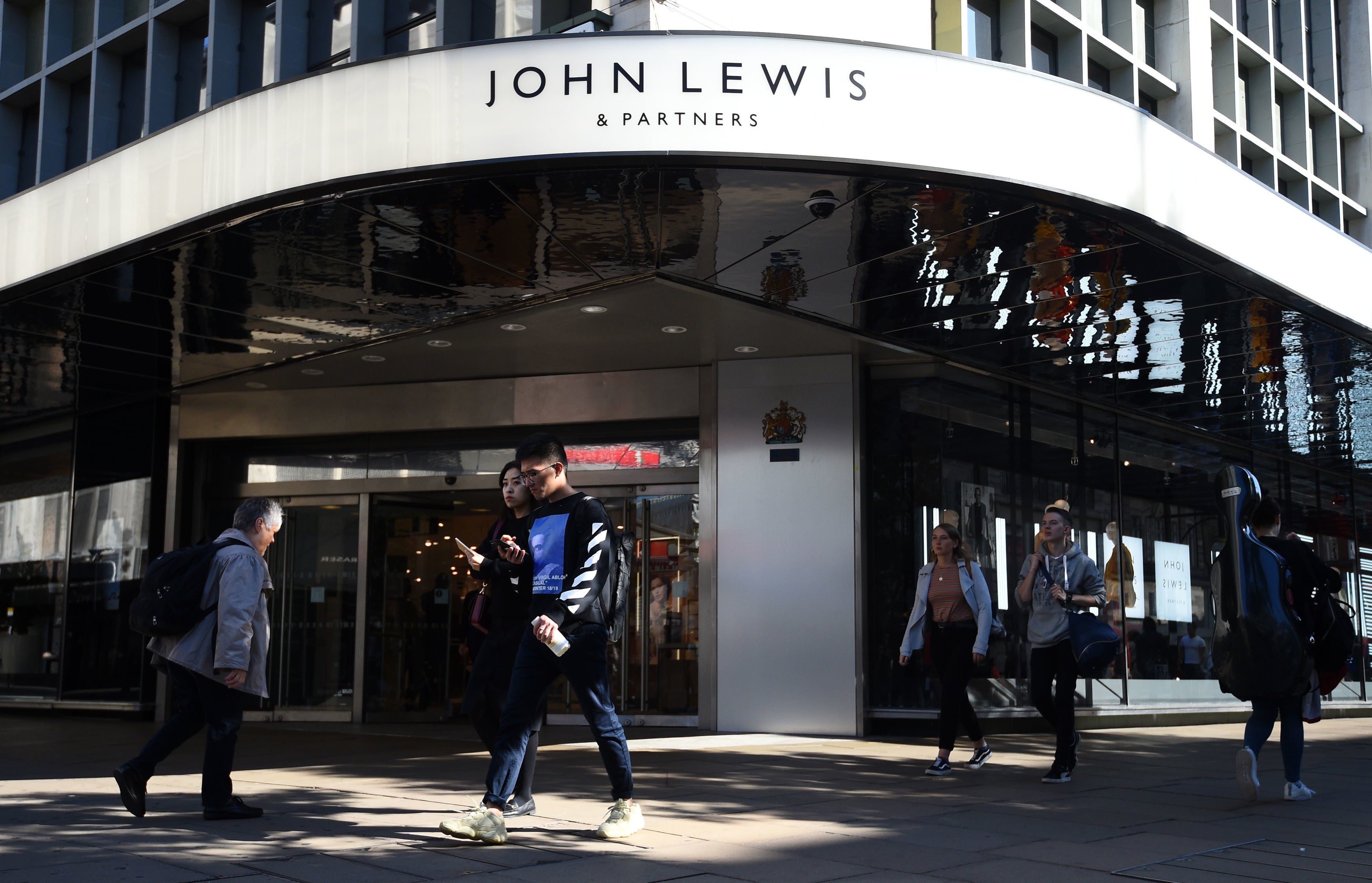John Lewis is losing money again – what does that say about its future?
The partnership says it is forgoing profit to help both staff and customers, writes James Moore


Compare and contrast: in the green corner (I’m basing this on the corporate colours), we have John Lewis, which says it is “making a conscious choice to forgo profit to provide support for partners and consumers”.
There may not be a bonus paid to staff – who own the business – this year but there will be a one-off £500 cost of living payment and free meals during the busiest period of the year.
In the orange/yellow corner there is Amazon. Workers at its Coventry warehouse are holding their first-ever strike ballot over what the GMB union has called an “insulting” 35p an hour pay offer. The union says they are angry over a rise that amounts to just 3 per cent when the UK rate of inflation is nearly 10 per cent.
Amazon is one of the biggest, most powerful and most profitable companies in the world. It can afford to do better. And I believe it should. Based on that information, where would you rather shop?
The unpalatable truth is that many people are still choosing Amazon. Maybe it is out of habit. Maybe it is the prices, although Amazon is not always the cheapest. Membership of the group’s “Prime” subscription scheme makes consumers liable to stick around.
Like every other retailer in Britain, John Lewis has to try to compete with the behemoth on a profoundly unequal playing field. Amazon’s warehouses are sited where business rates are low. It is a multinational with the capacity to arrange itself to maximise its tax efficiency. Its corporation tax payments in the UK are reliable causes of controversy.
John Lewis, meanwhile, has a substantial estate of bricks-and-mortar stores where those rates are anything but cheap. The margins there are still decent. But volumes have declined as people have moved online. This is also a UK business. When it makes profits, it makes UK tax. It didn’t make any in the first half of the year. On the contrary, the partnership lost £99m pre-tax. It was £29m in the red last year, although shopping patterns then were affected by Covid.
First-half losses aren’t unusual in this sort of business, where revenues and earnings are heavily skewed to the latter part of the year when shoppers splash out on Christmas, boosting the bottom line. But will they do so this year?
“We will need a substantial strengthening of performance, beyond what we usually achieve in the second half, to generate sufficient profit to share a partnership bonus with partners,” the partnership’s chair, Dame Sharon White, said in a letter to staff.
Frankly, it will take a miracle for any consumer-facing business not in the energy sector to put in a performance “beyond what we usually achieve in the second half” this year.
Dame Sharon has described the government’s energy prize freeze as “a potential game changer” for the consumer. I’m not convinced it is. Even with the freeze, energy prices will still be considerably higher than they were last Christmas. And it is not just energy that has eaten into the consumer’s resilience and reserves.
Food price inflation is running at a record 12 per cent. Every time people shop, they are finding less change in their wallets, whether that is the digital or the regular kind.
John Lewis is a brand you want to see on the High Street. Its ethos is admirable. Its workers are not drones, worth offering a miserable 35p an hour rise to for working in what to me looks very much like the equivalent of a Victorian mill, as happens at Amazon. They are partners. They have a stake.
But while the partnership is still standing at a time when many of its rivals are gathering dust in the corporate history books, this was still a bad result.
It’s hard to argue with what the business is doing to address the issues it faces. While it dropped its famous “never knowingly undersold” pledge the business has done well with a value range. It has cut costs. It is trying to diversify. An example would be the rental homes it has built.
The partnership made a point of highlighting the £1.1bn in cash it’s sitting on, plus the facility to call on £400m more. But it is also counting on the “loyalty” of its customers.
I’m not sure that’s guaranteed any more. It is an uncomfortable fact that price is going to trump idealism for most people in the current climate. Even if that means shopping with people they don’t necessarily like all that much.
John Lewis has repeatedly said that it has been in business for more than 150 years and intends to be in business for another 150 years. It is unfortunate, but I’m afraid that statement is now shrouded in a fog of uncertainty.






Join our commenting forum
Join thought-provoking conversations, follow other Independent readers and see their replies
Comments